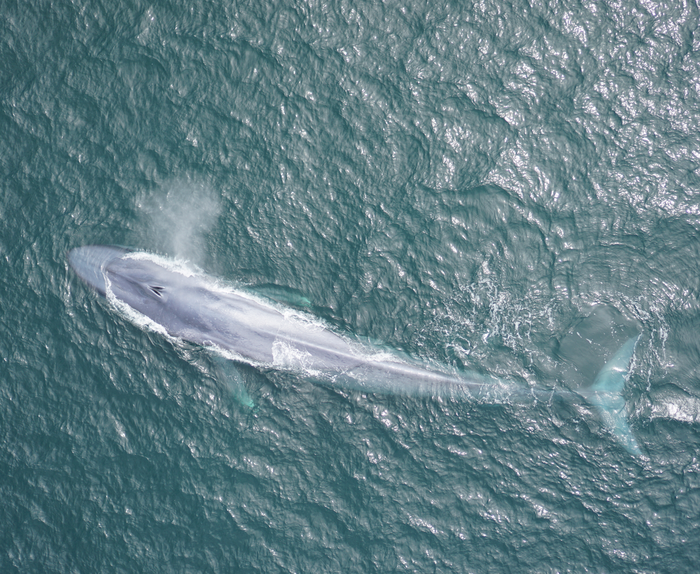Sperm whales can take over an hour to decide on whether to turn right
Researchers found that the animals only socialise with members of their own clan and make decisions on where and how to travel democratically

Sperm whales live in democratic communities and can take over an hour to decide whether to make a turn, a new study has found.
New research from Hal Whitehead, a sperm whale scientist at Dalhousie University, in Halifax, Canada, found that the animals are akin to humans in some ways as they tend to form “cultural clans” in the ocean.
The research, published in the Royal Society Open Science journal, used underwater microphones and drone surveys in the Pacific Ocean to examine sperm whales feeding habits and sounds.
Results revealed that sperm whale society is structured into clans of around 20,000 that are primarily distinguished by vocal dialects, which may be symbolic markers of clan identity.
Interestingly, researchers also found that the animals only socialise with members of their own clan and make decisions on where and how to travel democratically.
“Sperm whales, sometimes travelling in very large groups, make important communal decisions about where to go, how fast to travel, and when to feed in an environment varying substantially in resources and containing lethal predators,” the paper stated.
“Many of these changes in communal behaviour are slow and messy—a group of sperm whales can take an hour or more to make a 90o turn—so likely democratic”

The study says that some of these clans can span thousands of kilometres and there identified seven such groups in the Pacific Ocean.
While two or more clans typically use the same area, the whales were found to only socialize with members of their own clan which scientists say may be reminiscent of how different linguistic groups of humans operate.
The clans were found to be largely matrilineal, meaning that social units were based on around ten female sperm whales and their offspring.
“Sperm whales, and in particular the females and young, are clearly very social, almost always seen close to one another, often gathering and rolling around each other for minutes to hours at the surface, and forming important life-long bonds,” the study said.
It added: “The members of the unit travel together, suckle each others’ infants, and babysit them while mothers make long deep dives to feed.”
Male sperm whales tend to their natal social units in their teens and head to higher latitudes, away from their mothers and other female relatives who remain in warm waters, giving the animals the greatest sexual segregation of any species.
Whitehead noted that the clans appeared to be “almost entirely female-based”, with males visiting females only occasionally for a few hours to “transfer sperm”.
Sperm whales have the largest brain of any creature known to have lived on earth and also have a large nose with what’s known as a spermaceti organ.
The spermaceti organ primarily functions as a sonar, making clicks with the highest sound pressure level of any animal which allows sperm whales to find their deep-water prey efficiently.
Whitehead noted that the spermaceti organ contains a particularly fine grade of oil, which consequently saw the sperm whales become a prime target of whalers. Over a million of them were killed across the deep oceans between 1712 and 1982.
As whaling came to an end and research on the living creatures increased, Whitehead noted that apparent parallels between humans and the species became more apparent.
He added that research on the species living in a very different habitat indicates that the processes of social evolution may not be unique to humans.
Join our commenting forum
Join thought-provoking conversations, follow other Independent readers and see their replies
Comments
Bookmark popover
Removed from bookmarks